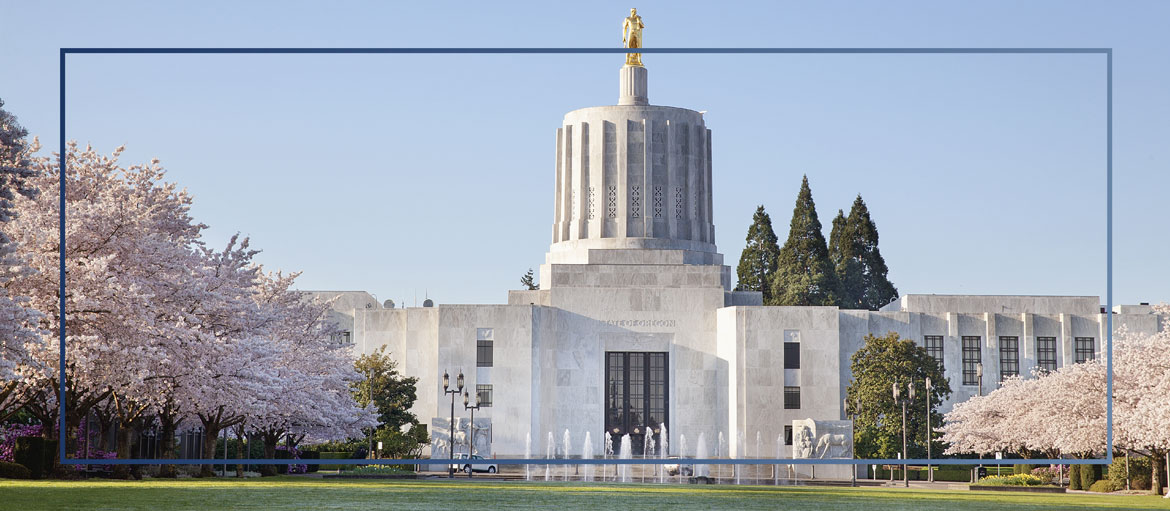Report 2025-25

Objective
The objective of this audit was to evaluate how the Bureau of Labor and Industries (BOLI)’s governance structure and internal operations have led to backlogs and claim processing delays, and how this impacts Oregonians.
Scope
This audit examined BOLI’s internal governance structure and internal controls. It documented backlog issues in each of the bureau’s divisions: Wage and Hour, Civil Rights, Apprenticeship and Training, and Legal Policy.
Why this audit is important
For over 120 years, BOLI has enforced the state’s employment laws.
BOLI’s mission is to protect workers’ rights through enforcement of state employment laws, ensure access to housing and public accommodations free from discrimination for all Oregonians, and promote the development of a highly skilled workforce through registered apprenticeship programs.
BOLI is an enforcement agency with an important role to protect Oregon’s workers. To be effective in this role, the agency must be efficient and timely with its services. Yet years of poor management and lack of staff left the agency struggling to keep up with demand.
Currently, there are work backlogs in all BOLI’s major program areas. Oregon’s workers are often waiting years for a resolution. This undermines BOLI’s ability to protect workers and can damage public trust in government.
What we found
Management decisions reflect poor planning and strategic neglect.
Years of poor management and inadequate resourcing play a central role in BOLI’s challenges, and the current administration risks continuing prior missteps. The agency struggled and still struggles to plan and implement key changes. Important decisions, both past and present, are either not documented, not clearly communicated, or lack thorough consideration of consequences. For example, it is unclear when, how, and why a prior administration decided to stop completing federally required compliance reviews of apprenticeship programs.
BOLI’s failure to maintain internal policies and procedures puts continuity and performance at risk. Turnover in leadership and management contributed to instability.
According to the current Commissioner, many foundational documents like policies and procedures were lacking when the new administration took office. Agencywide policies and procedures did not exist or were outdated. The agency has yet to fully adopt a central repository for existing information but is developing it. In the last six years, the agency has experienced significant turnover in leadership and management. Frequent leadership change may lead to policy reversals and inconsistencies, while the absence of policies and procedures make it difficult to maintain stability and achieve development goals and puts continuity and performance at risk.
The agency’s challenges weaken enforcement of Oregon’s labor and civil rights laws.
BOLI’s challenges weaken its ability to function effectively and meet its mission of helping Oregon’s workers. Some BOLI complainants wait years for owed wages or justice for workplace civil rights violations. Agency leadership is limiting services based on available resources, meaning employers may continue to violate Oregon’s employment laws at the expense of workers. Following an initiative to expand the agency’s resources, the 2025 legislative session allocated 46 new permanent positions to address workforce gaps and reduce backlogs. Failure to deploy these funds strategically risks perpetuating service delays and may diminish the agency’s credibility.
BOLI’s success depends on clear priorities and aligned workforce.
The agency’s workload does not appear to be subsiding, and the agency is unable to keep up with demand. Management began making procedural changes and building back key staff, but more is needed to align with business needs. The agency should develop and implement strategic and workforce planning strategies to appropriately allocate resources. BOLI should align job descriptions and staff compensation with its workforce plan. To ensure stability and sustainability during future leadership changes, the current administration should develop a transition plan for the next Commissioner, addressing the lack of one during the 2023 transition.
What we recommend
-
Evaluate each program’s processes by:
-
Mapping out each program’s process(es) with input from key staff and managers;
-
Identifying and addressing any source of bottlenecks or confusion;
-
Creating an action plan with due dates to implement changes in practice, policy or procedures; and
-
Assuring written policies and procedures align with established process(es).
Agency response:
Agree
Target completion date: End of 2026
-
Regularly review claim data to identify trends, guide backlog triage, and assess the effectiveness of solutions.
Agency response:
Agree
Target completion date: Ongoing 2027
-
Conduct ongoing workforce planning and management, including:
-
Analyzing current workforce, including skills, experience, and performance;
-
Forecasting future workforce needs using current data;
-
Identifying differences between current and future workforce demands; and
- Developing strategies to address gaps.
Agency response:
Agree
Target completion date: End of 2026
-
Develop short-term and long-term staffing plans for each of the divisions and units using information garnered from workforce planning and analysis.
-
Identify solutions that alleviate or reduce stress on staff who perform multiple roles or are the only staff member to own a task; and
-
Conduct an agencywide wage parity and classification analysis.
Agency response:
Agree
Target completion date: October 2026
-
Ensure the case management system streamlines workflow, centralizes case data, tracks important deadlines, and improves communication within the division and externally.
Agency response:
Agree
Target completion date: December 2027
-
Collect, monitor, and publicly report backlog data to stakeholders via a website or other means.
Agency response:
Agree
Target completion date: June 2026
-
Bring apprenticeship program reviews into compliance with state and federal regulations.
Agency response:
Agree
Target completion date: Ongoing
-
Develop and operationalize a strategic plan.
Agency response:
Agree
Target completion date: Implementation ongoing. -
Develop a transition plan for incoming Commissioners.
Agency response:
Agree
Target completion date: Ongoing -
Create, document, and centralize agencywide and program-specific policies and procedures.
Agency response:
Agree
Target completion date: July 2026
Agency Response
BOLI agreed with all of our recommendations. The response can be found at the end of the report.